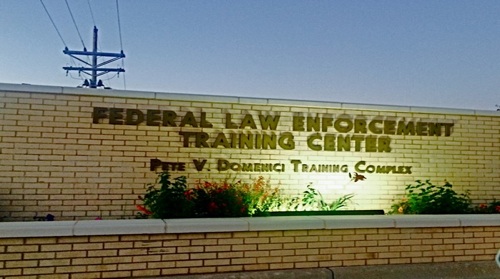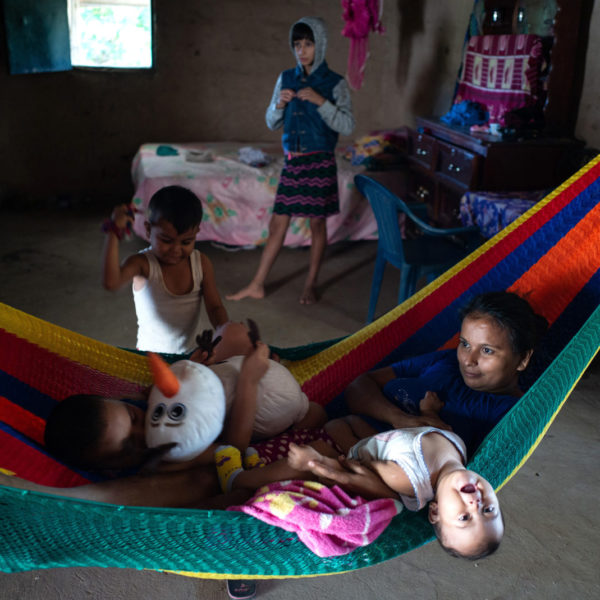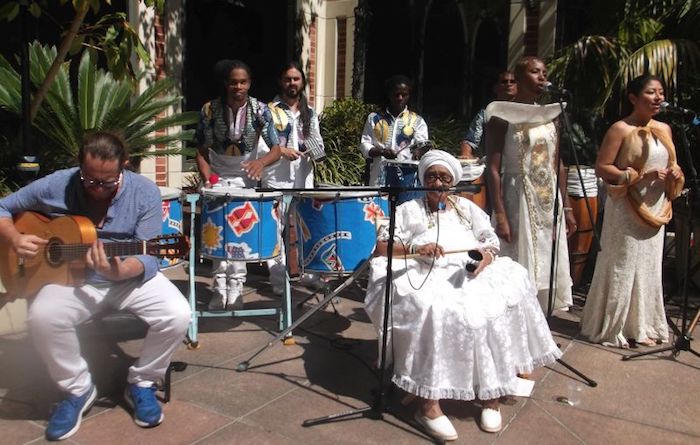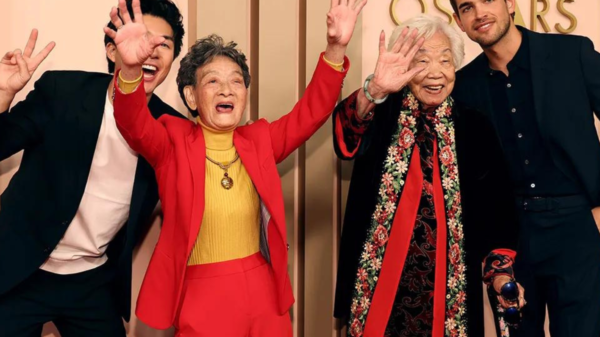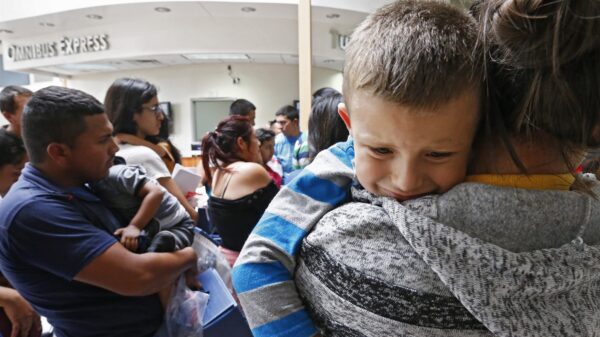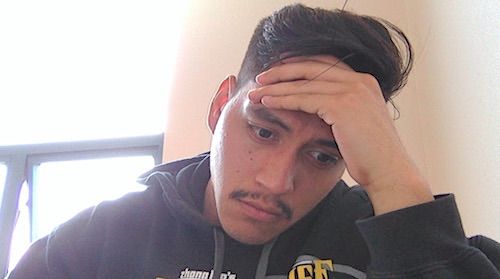Ed. Note: Earlier this month immigration attorney Helen Lawrence joined a team of 10 Bay Area lawyers for a week-long stint providing free legal aid to immigrant detainees being housed at the Federal Law Enforcement Training Center in Artesia, New Mexico. The center holds between 400-500 inmates, all women and children who began arriving in July as part of a larger wave of migrants fleeing violence and poverty in Central America. Lawrence writes of children muted by trauma, and of hearings where judges set “astronomical” bonds that function to dissuade detainees to drop their asylum claims and accept deportation orders. Lawrence says that despite these challenges, for those women who stick it out the legal representation she and others have provided has been key to winning their asylum.
My first sight of the Federal Law Enforcement Training Center (FLETC) in Artesia, New Mexico reminded me of stories I heard from Japanese Americans who as children were held in internment camps. FLETC is entirely comprised of trailers. The detainees there are housed in trailers. The courts are trailers.
Upon arrival in Artesia we met with a pro bono project crew – one attorney and two paralegals – in a community church the location of which remains confidential for safety reasons. There are no legal services in Artesia. Apart from these three individuals, the only legal representation detainees have is the small teams of immigration attorneys who take turns to fly in each week from all over the country.
All of the 400-500 detainees at FLETC are women and children. The average age of the children appears to be 3-4 years old.
U.S. asylum law, which comes from the UN Refugee Convention and was codified into law by Congress, requires that if detainees express a fear of return to their home country they must be given an interview with an asylum officer. If they pass the interview, they get to see a judge to adjudicate their asylum case and are eligible for bond. If they don’t pass, they have the right to ask an immigration judge to review the denial and possibly overturn it.
Ideally, once they pass their asylum interview or convince a judge to reverse the denial of their asylum interview, they are released on bond and their court case gets transferred to the court nearest to where they go to live. Once/if they get out of detention, their court case slows down significantly, giving families time to gather evidence to support their case, find a lawyer, and process the fear they have in order to better communicate it.
Before the pro bono project began in Artesia, the majority of the women detainees were not passing their asylum interviews. With the arrival of lawyers, however, that percentage has flipped, with the vast majority of women now passing their interviews.
On average our days in Artesia ran from 5:30 am to 1:30 am, logging in around four hours of sleep a day. We entered the facility in the cool dawn hours and left at dusk. In between those hours, when we would step out of the attorney trailer or the court trailer, the bright sun and the bland backdrop of the white trailers that comprise the detention center and the Southwest landscape were blinding.
After leaving the detention center, we went to the church to meet together to troubleshoot cases, receive updates, and dole out the next day’s cases and workload. After the group meeting, we would begin preparing our cases for the next day.
The women we saw were mostly from El Salvador, Guatemala and Honduras. Most came to the attorney trailer for consultations with their children beside them, often having to recount horrific stories of rape, domestic violence, abuse, and other threats within earshot of their kids. As a distraction, ICE would put on a children’s video and tear out pages of coloring books and give the children crayons that they have to return when they leave the legal trailer.
Most of the children had coughs, some had sores on their faces, and one kid had a growth on his face. There have been chicken pox outbreaks here, leading to quarantines. Many of the children who are old enough to be weaned from bottles have regressed to bottles. Some moms reported their children were sleeping for distressingly long hours.
Another observation from our team was how quiet the kids are in Artesia. I spent two days working with one mother and her 16-month-old. The child’s face was always tear-stained and yet he never made a peep or fussed.
Federal law requires that the children in detention are provided schooling. Although the detention center has been open since July, school only started in mid-October for three hours a day and then was quickly suspended indefinitely.
In order for the women and children to meet with us, attorneys would submit a list to ICE the day before of detainee names. But despite the pro bono project’s aim to serve every inmate, the project does not receive a list of newly arrived women and kids. These new arrivals are dependent on the longer-term inmates to bring them to our attention, often by passing along scraps of paper, or papelitos, with the name of a new detainee, sometimes her housing unit and a question for attorneys in the legal trailer.
Initially, Artesia cases were heard by judges in Arlington, VA, who typically set bonds at around $20,000 to $30,000. Later, cases were heard by judges in Denver, who set lower rates, ranging from $1,500 to $12,000. While an improvement for new detainees, those who had their bond hearing previously were now stuck with a $20,000 bond they could not pay.
Indeed, many detainees viewed that discrepancy between women and children who had their cases decided before or after any lawyers arrived and/or before the judges had been changed as an injustice. Longer-term detainees – now approaching their 4-month mark at Artesia – watched as new arrivals received favorable decisions more quickly and with greater ease while they themselves remained caught up in a lengthy legal labyrinth involving appeals, requests to reconsider, and filings to federal court.
Court hearings were held via video conference on a television the size of my desktop computer, with lawyers and detainees seated at a small card table. Women were brought in two at a time for their hearings.
The children were always present – sitting backwards in chairs, running around the table, sleeping or crying. When the judge was swearing in one woman for her bond hearing, her 5-year-old son, mimicking his mom, raised his right hand with a paper airplane in it, swearing to tell the truth, the whole truth and nothing but the truth.
A longer version of this story originally appeared in Silicon Valley DeBug.

